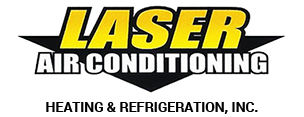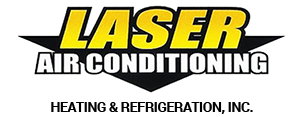When winter arrives, air conditioning (AC) systems are often the last thing on homeowners’ minds. However, maintaining your AC during the colder months is crucial for ensuring it remains efficient and reliable when the warm weather returns. Proper winter maintenance not only helps extend the life of your AC unit but also prevents costly repairs and keeps your system in top condition year-round.
Why AC Maintenance is Important in Winter
Even though your AC may not be in use during the winter, neglecting its maintenance can lead to problems when it’s needed most. Here’s why winter maintenance is essential:
- Prevents Damage from Cold Weather:
- AC units, especially outdoor condensers, are exposed to harsh winter elements like snow, ice, and freezing temperatures. Without proper maintenance, moisture can accumulate and freeze, leading to corrosion or physical damage to components. Regular checks and protective measures help prevent such damage.
- Extends the Lifespan of the System:
- Regular maintenance, including during the off-season, can significantly extend the life of your AC system. By addressing potential issues early, you can avoid the wear and tear that can lead to premature failure of the unit.
- Improves Energy Efficiency:
- A well-maintained AC unit runs more efficiently, which translates to lower energy bills and less strain on the system. Even during the winter, ensuring the system is clean and free of debris can contribute to overall efficiency when the system is back in use.
- Reduces the Risk of Unexpected Breakdowns:
- Maintenance helps identify and address minor issues before they escalate into major problems. This proactive approach reduces the likelihood of unexpected breakdowns during peak cooling season, when repairs can be more expensive and inconvenient.
Winter AC Maintenance Checklist
To keep your AC in optimal condition during the winter, follow this comprehensive maintenance checklist:
- Clean and Cover the Outdoor Unit:
- The outdoor unit, or condenser, is exposed to the elements throughout the year. Begin by cleaning the unit thoroughly. Remove any debris, such as leaves, dirt, or branches, from the area around the condenser. After cleaning, consider covering the unit with a breathable, waterproof cover designed for AC systems. This cover will protect the unit from snow, ice, and moisture buildup, which can lead to corrosion and damage.
- Check for Damage and Wear:
- Inspect the outdoor unit for any visible signs of damage, such as cracks, rust, or loose parts. Pay close attention to the fins and coils, as these can be easily damaged by debris or ice. If you notice any issues, it’s best to address them immediately, either by making repairs yourself or calling a professional technician.
- Inspect and Replace Air Filters:
- Air filters play a crucial role in maintaining indoor air quality and ensuring efficient airflow through your AC system. Dirty or clogged filters can strain the system, reducing its efficiency and potentially causing damage. Even in winter, it’s important to check and replace filters regularly, especially if the heating system shares the same ductwork as the AC.
- Examine the Thermostat:
- Ensure that your thermostat is functioning correctly and is set to an appropriate temperature for winter. If you have a programmable thermostat, consider adjusting the settings for winter, so the heating system isn’t working harder than necessary. This can also help prevent the AC from accidentally turning on during a warm winter day.
- Schedule a Professional Inspection:
- While there are many tasks you can handle on your own, having a professional technician perform a thorough inspection of your AC system during the winter is highly recommended. A professional can identify and address any issues that may not be apparent during a visual inspection. They can also perform essential tasks such as checking refrigerant levels, inspecting electrical components, and testing system performance.
- Protect the Unit from Ice and Snow:
- If your area experiences heavy snowfall or ice accumulation, take additional steps to protect the outdoor unit. Make sure the unit is elevated on a sturdy platform to prevent it from sitting in pooled water or snow, which can freeze and cause damage. Keep the area around the unit clear of snow, and remove any ice that may build up on the unit itself.
- Maintain Indoor Components:
- Don’t forget about the indoor components of your AC system. Inspect the ductwork for leaks or blockages, and make sure all vents are open and unobstructed. Clean or vacuum the vents and registers to ensure good airflow and prevent dust buildup. If your system includes a heat pump, make sure it’s operating efficiently and isn’t struggling to maintain your desired indoor temperature.
Tips for Year-Round AC Care
In addition to specific winter maintenance tasks, adopting a year-round approach to AC care can help keep your system in peak condition.
- Regular Maintenance Schedule:
- Establish a regular maintenance schedule that includes both seasonal checks and more frequent tasks like filter replacement and cleaning. Consistency is key to preventing problems and ensuring your system runs smoothly throughout the year.
- Monitor Energy Usage:
- Keep an eye on your energy bills to spot any unusual increases that could indicate your AC system is struggling or operating inefficiently. Sudden spikes in energy use could signal issues that need immediate attention.
- Upgrade Insulation and Weatherproofing:
- Improving your home’s insulation and weatherproofing can reduce the strain on your AC system, both in winter and summer. Proper insulation helps maintain a consistent indoor temperature, reducing the need for heating and cooling adjustments.
- Invest in a Smart Thermostat:
- A smart thermostat can help you monitor and control your home’s temperature more effectively, ensuring your HVAC system operates efficiently. Many smart thermostats offer features like remote access, energy usage reports, and automatic adjustments based on your habits.
- Consider a System Upgrade:
- If your AC system is aging or frequently requires repairs, it may be time to consider upgrading to a more energy-efficient model. Modern AC systems are designed to be more reliable and efficient, offering better performance with lower energy consumption.
Conclusion
Winter is the perfect time to focus on AC maintenance, ensuring that your system is ready to perform at its best when the weather warms up again. By following a comprehensive maintenance checklist, protecting your outdoor unit, and addressing any potential issues early, you can extend the life of your AC system, improve its efficiency, and avoid costly repairs. Year-round attention to your AC system, including during the winter, is essential for maintaining comfort in your home and maximizing the return on your investment in your HVAC system.

